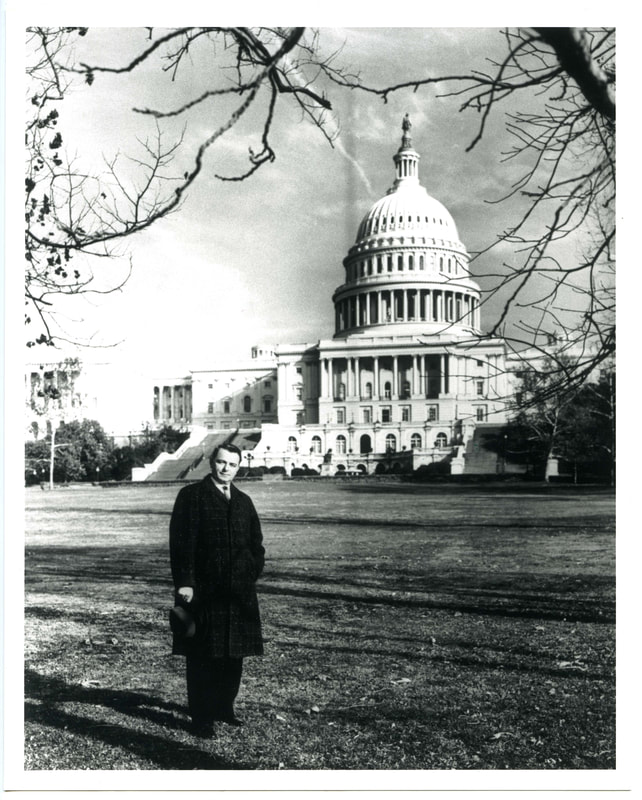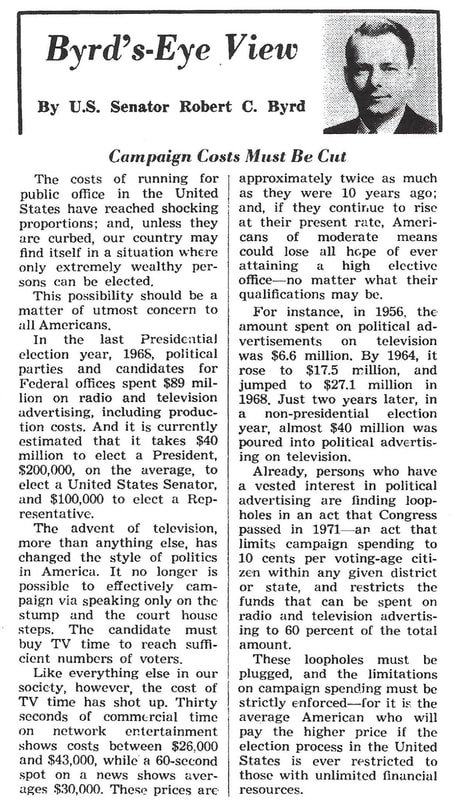|
By Richard Jones, Byrd Center Student Intern
To understand Byrd’s stance on the topic of campaign financing, when Byrd ran for his first Senate term in 1958, his and fellow West Virginia Senator Jennings Randolph’s campaigns totaled about $50,000 combined. Contrast this with the election years of 1968 and 1972, where on average it cost $40 million to elect a President, $200,000 to elect a United States Senator, and $100,000 to elect a United States Representative. Byrd argued that the increased reliance on television was the primary factor of rising campaign costs due to the need to run advertisements promoting their campaign. Failing to do so would limit the reach of their campaign and prevent them from having a chance in winning their elections. While these issues had been addressed by Congress before, notably in the 1971 Federal Election Campaign Act which was meant to regulate campaign financing, loopholes were found and exploited by politicians and political advertising as evidenced by Byrd’s statistics in the 1972 elections. Byrd stated that these loopholes needed to be addressed and fixed so that these limitations on campaign spending from the act could be effectively enforced. Byrd’s primary argument for the need of campaign financing reform was due to the negative impact that the current system had on American citizens. The campaign financing system as described by Robert Byrd undermined the peoples’ faith in their congressional representatives who ideally should be reflective of the people who elected them. With the increasing high costs of effectively-ran campaigns in the last 50 years, an increasingly less amount of average people could afford to run for government office, leading to disparity between the members of the federal government and typical American citizens. Byrd also stated that an ever-growing amount of political advertisements and expansive amounts of candidate promotion due to the excessive amounts of campaign spending was unhealthy for American citizens. Byrd found that many Americans tended to become annoyed by the feeling of inescapably of these candidates. It also gave the impression that the United States government was no longer a democracy but rather an aristocracy of money, which is why Byrd called this campaign financing crisis a “threat to American democracy.”
Comments are closed.
|
Welcome to the Byrd Center Blog! We share content here including research from our archival collections, articles from our director, and information on upcoming events.
Categories
All
Archives
July 2023
|
Our Mission: |
The Byrd Center advances representative democracy by promoting a better understanding of the United States Congress and the Constitution through programs and research that engage citizens.
|
Copyright © Robert C. Byrd Center for Congressional History and Education
|



 RSS Feed
RSS Feed
